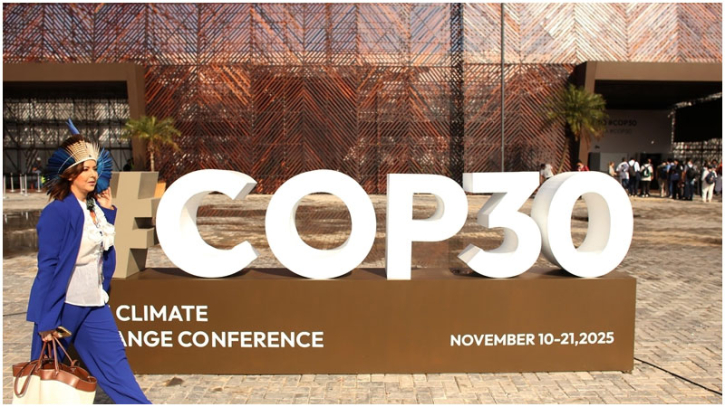COP30 ends without fossil fuel phase-out, prompting open protests from several nations

The COP30 climate summit in Brazil concluded Saturday without securing a commitment to phase out fossil fuels, triggering immediate and unusually public protests from numerous countries that warned the final text weakens global efforts to limit warming to 1.5°C (2.7°F).
The final draft, introduced by the Brazilian COP30 presidency, avoided any explicit reference to ending the use of oil, gas, or coal—language that had been strongly opposed by major petroleum exporters and several emerging economies. Instead, the agreement urges countries to accelerate climate action on a voluntary basis, a shift viewed by critics as a retreat from scientific imperatives.
Tensions spilled into the open during the final plenary session. Delegations from the EU, Colombia, Panama, and Switzerland objected on the floor, raising their flags in protest. COP30 President Andre Correa do Lago paused the proceedings before later confirming that the texts had been adopted despite the objections and concerns raised over the limited opportunity for public intervention.
“I’m sorry. I didn’t see the flags,” do Lago said upon resuming the session.
More than 80 countries—including Colombia, France, and Spain—had pushed throughout the two-week summit for a clear pathway toward a fossil fuel phase-out. Colombia emerged as one of the strongest critics of the final outcome. Its Environment Minister, Irene Velez, said the summit had failed to uphold its scientific and moral responsibilities.
“Colombia will not accept a text that denies science, prevents achievement of the 1.5°C target, and turns its back on people and life,” Velez said.
President Gustavo Petro also voiced his opposition, stating on social media that he rejected the document because it omitted the scientifically established link between fossil fuels and the climate crisis.
European Commissioner for Climate Action Wopke Hoekstra acknowledged the EU’s disappointment, saying the bloc “would have liked to see much more, especially more ambition,” though it will nonetheless support the adopted agreement.
Brazilian President Luiz Inácio Lula da Silva, however, maintained that the summit was a success, asserting that “science prevailed, multilateralism won.” Brazil will continue operating within the voluntary commitments until it transfers the COP presidency to Türkiye next year.
The summit was marked by the absence of the United States—the world’s largest oil producer—which did not attend the talks in Belém.
.png)




